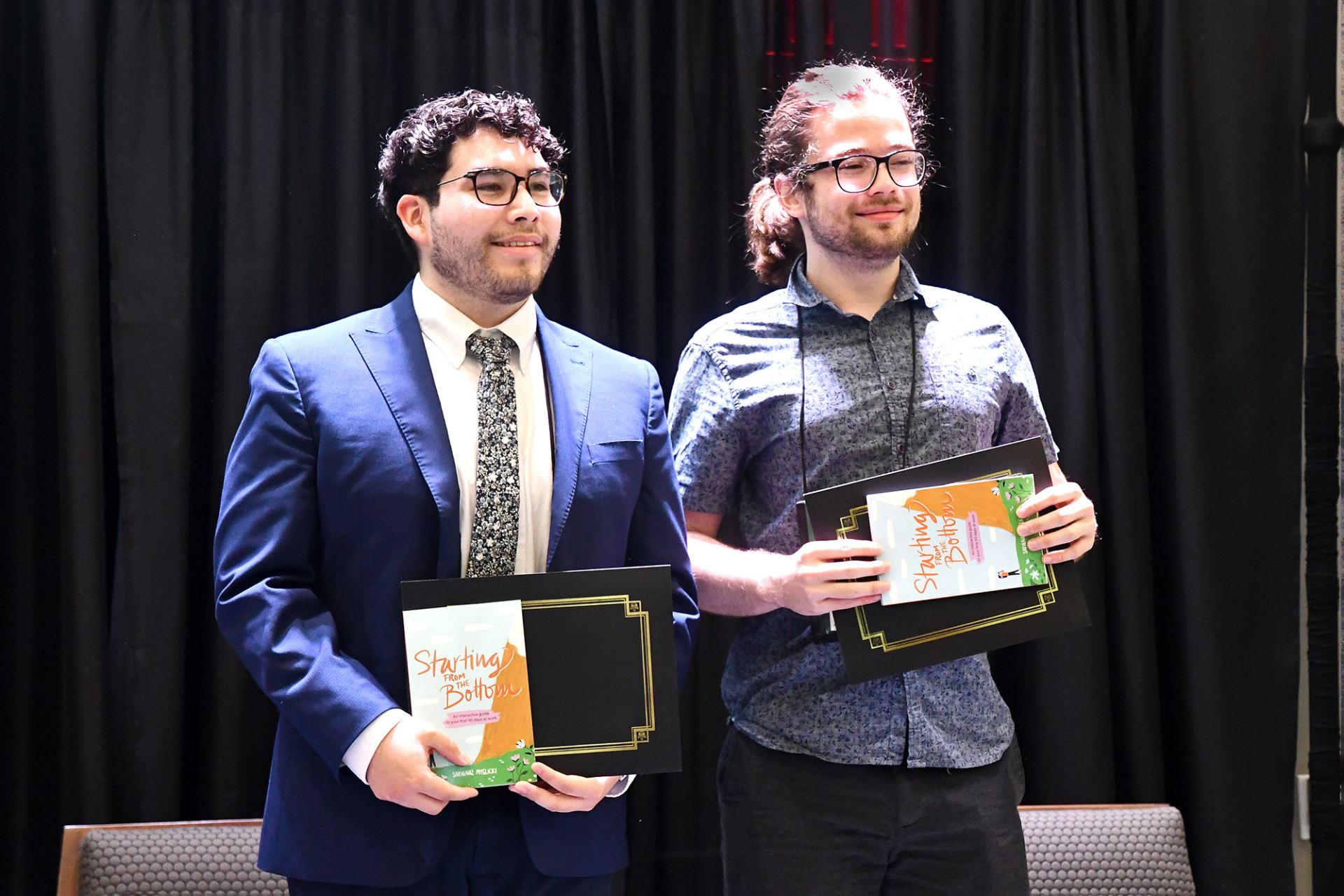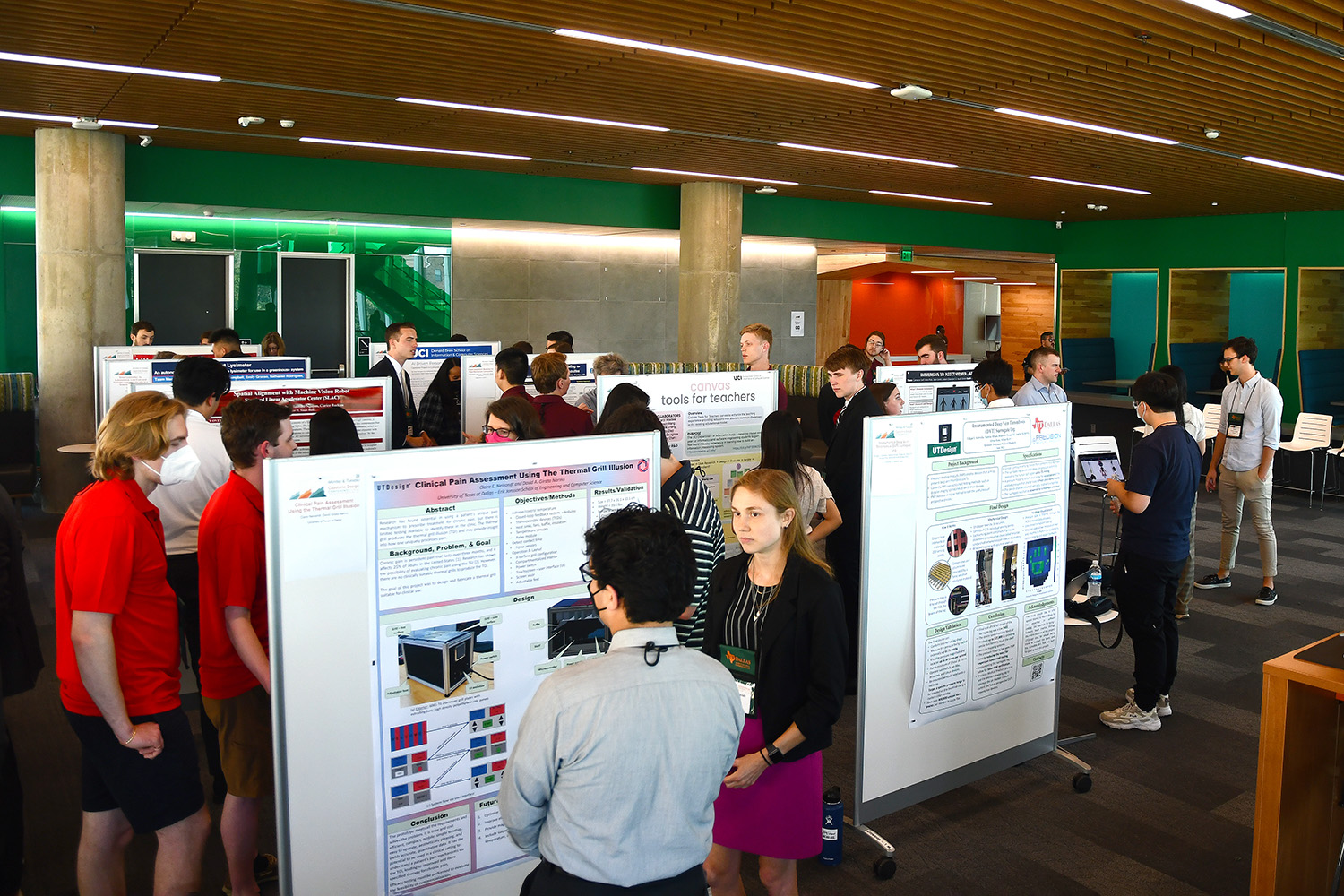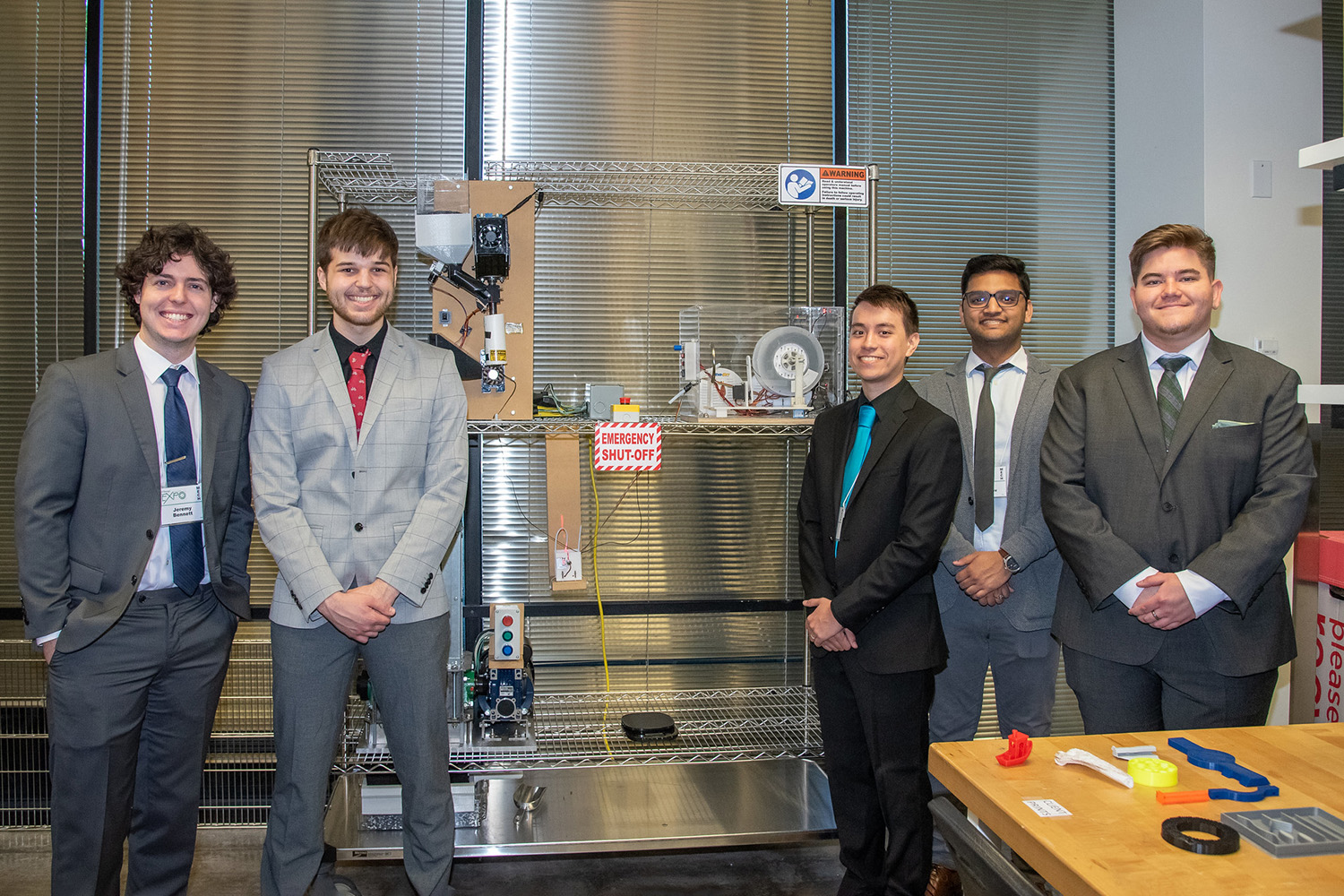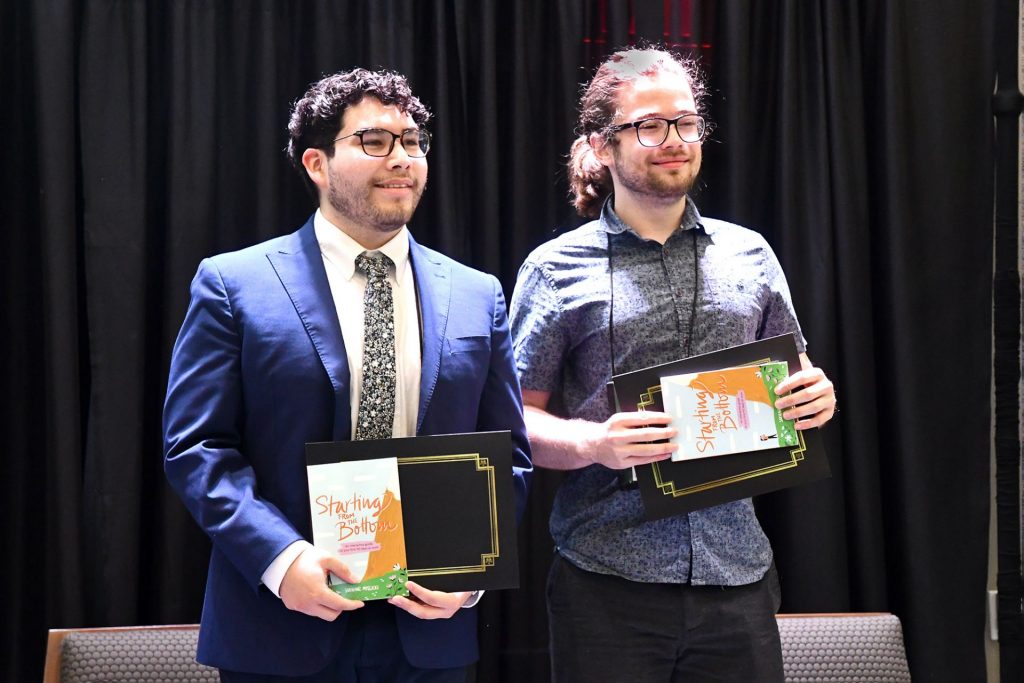
A team of University of Texas at Dallas student engineers won a first-place award at the 2022 Capstone Design Conference for developing a system that helps a corporate sponsor test its devices to prevent blood clots after surgery.
The UTDesign Senior Capstone Program team shared the top honor with teams from the University of Michigan and the University of Florida. UT Dallas hosted the national conference, which drew about 200 attendees from more than 65 universities June 6-8.
The award marked the program’s fourth top honor at the event. UTDesign teams have won nine first-place awards at national competitions since 2014.
The team of biomedical engineering and mechanical engineering students developed a pressure-sensing system for Precision Medical Products, a Carrollton, Texas, company that makes post-surgical devices to prevent deep vein thrombosis, which occurs when a blood clot (thrombus) forms, usually in a leg.

The UTDesign team’s device, shaped like a human calf, serves as a surrogate leg for testing. Rows of intersecting copper tape on the device create more than 225 sensing points to make it possible to visualize the applied pressure, providing more than 400,000 unique data points per minute.
“The students’ ability to work as a team led to an exceptional outcome that absolutely exceeded our expectations,” said Tony Spyropoulos, Precision Medical’s executive vice president of product development. He said the UTDesign team’s device will help the company avoid the expense and delays of outsourcing its testing.
Biomedical engineering senior Edgar Acevedo accepted the award with Roger Decker III BS’22, the team’s leader.
“It was an honor and a pleasure to represent UT Dallas at the conference,” Acevedo said. “This would not have been possible without UTDesign’s staff and faculty. I am ecstatic that we were able to maintain UTD’s legacy of excellence by placing first.”
UTDesign teams have completed 934 engineering and computer science projects for 364 sponsors since the Erik Jonsson School of Engineering and Computer Science launched the program in 2009.
“We are extremely proud of all three of our teams that competed at the conference this year, and once again they have shown everyone the level of complexity that we undertake in our UTDesign projects,” said Dr. Todd Polk, associate professor of practice and UTDesign director for bioengineering. “We are equally excited to keep our four-conference winning streak alive.”
The students said the project gave them valuable hands-on experience as they prepare for the job market.
“I gained a lot from my work on this project, but most importantly I believe this gave me a huge insight into the working industry,” said Decker, who completed his degree in mechanical engineering last spring. “I’ve learned so much over the past year because of this project, and I’m glad I had the opportunity to participate and be part of this amazing team.”
Precision Medical plans to work with another UTDesign team in the fall, Spyropoulos said.
“We absolutely will be using UTDesign again,” he said. “As long as UTD will have us back, we will continue participating.”
UTD Hosts Capstone Design Conference for First Time

Four years was worth the wait, according to UTDesign Senior Capstone Program leaders who hosted the national Capstone Design Conference for the first time at UT Dallas in June.
The event, last held in person in 2018, brought together students, staff, faculty and industry representatives to focus on best practices for hands-on engineering education and capstone design programs.
“The experience gave us an opportunity to show off our campus,” said event organizer Dr. Todd Polk, associate professor of practice and UTDesign director for bioengineering in the Erik Jonsson School of Engineering and Computer Science. “Every time I participate, I learn something new, and, because the conference is so hyperfocused, it gives us a chance to deep dive.”
The conference included a student capstone competition, mentoring, sharing of best design practices, and tours of the UTDesign Studio and nearby corporate research facilities. Dr. Stephanie G. Adams, dean of the Jonsson School and holder of the Lars Magnus Ericsson Chair in Electrical Engineering, moderated a panel discussion about the importance of inclusion in the design process so teams can create products for the greatest number of people.
Dr. Robert Hart, associate professor of practice and UTDesign director for mechanical engineering, also helped organize the event, and Anricka Ziller, events manager for Blackstone LaunchPad, and Kathryn Grant, administrative assistant in systems engineering, were key members of the planning team.
“It was an honor to be selected to be the host institution for this conference,” Hart said. “Going from being first-time attendees at the conference in 2012 to being the host institution a decade later shows how UTD has grown to become a national leader in capstone design education.”
— Laura Schmidt
UTDesign Team Earns ASME Award for Recycling Device

A UTDesign Senior Capstone Program team from The University of Texas at Dallas placed second at the American Society of Mechanical Engineers (ASME) national Student Manufacturing Design Competition for its small-scale device to recycle 3D-printed material.
The honor marked the eighth consecutive year that a UTDesign team has won an award at the ASME competition. Team member Micah Eckstein BS’22 presented the project at the event in June at Purdue University. The students designed the device for sponsor UT Southwestern Medical Center.
“The UTDesign process was a great learning opportunity,” Eckstein said. “It gave us a good chance to apply all the theoretical things we had learned in our courses and gave us a glimpse of what real-world engineering looks like. The project was an internship in its own right, while the class provided us with many job skills that I feel will be very useful throughout my career.”
The team of mechanical engineering students also included Jeremy Bennett BS’22, Aaron Foreman BS’22, Kavish Srivastav BS’22 and Nathaniel Fritsch BS’22.
— Kim Horner
